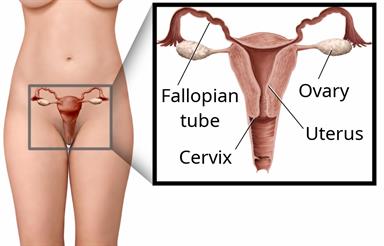Having Trouble Getting Pregnant (Female Infertility): What to Know
Infertility is when people have trouble getting pregnant. If you're female, it means not getting pregnant after a year of trying without using birth control. It can also mean not being able to carry a pregnancy to full term.
If you're over 35 years of age, you should have your fertility checked after 6 months of trying to get pregnant.
What are the causes?

Female infertility may be caused by:
- Problems with the reproductive organs, such as:
Not releasing an egg from the ovary each month or not at all.
A blockage or scarring in the fallopian tubes.
A fibroid. This is a growth of tissue or muscle in the uterus.
A uterus that has an unusual shape.
A short cervix or a cervix that doesn't stay closed during a pregnancy.
- Certain medical conditions. These may include:
A hormone disorder called polycystic ovary syndrome (PCOS).
Endometriosis. This is when the tissue that lines the uterus grows outside of it.
Problems with the thyroid or pituitary gland.
Early ovarian failure. This is when the ovaries stop working before age 40.
Sexually transmitted infections.
Autoimmune disorders. These happen when the body's defense system (immune system) attacks healthy cells.
Cancer and cancer treatments.
Infertility can have more than one cause. In some cases, the cause isn't known.
What increases the risk?
A female's fertility decreases with age, especially after their mid-30s. Other things may also make you more likely to have infertility. These include:
Stress.
Using products with nicotine or tobacco.
Being underweight or overweight.
Drinking too much alcohol.
Using drugs such as anabolic steroids, cocaine, or marijuana.
Exercising too much.
How is this diagnosed?
Female infertility may be diagnosed by:
- Checking whether you're ovulating, or releasing an egg each month. The tests may include:
- If ovulation is normal, other tests to check the reproductive system may be done. These can include:
A type of X-ray called a hysterosalpingogram.
Laparoscopy. A thin tube with a light is used to look for problems in the fallopian tubes and other organs.
A transvaginal ultrasound to check the uterus and ovaries.
Hysteroscopy. This uses a lighted tube to check the cervix and uterus.
As part of diagnosing infertility, both partners will have a physical exam. They will also have their medical and sexual history taken.
How is this treated?
Treatment depends on the cause. Most cases of infertility are treated with medicine or surgery.
- You may be given medicine to:
- Surgery may be done to:
Fix damage to the ovaries, fallopian tubes, cervix, or uterus.
Remove growths or scar tissue.
Follow these instructions at home:
Lifestyle
-
If you drink alcohol, limit how much you have to 0–1 drink a day.
-
Do not smoke, vape, or use nicotine or tobacco.
-
Find ways to reduce stress. Some good options include regular physical activity, meditation, or deep breathing.
-
Make changes to your diet if needed to lose weight or stay at a healthy weight. Work with your health care provider and an expert in healthy eating called a dietitian. They can help you set a weight-loss goal that's right for you.
General instructions
-
Take your medicines only as told.
-
Get support from a counselor or support group. Couples counseling may be helpful for you and your partner.
-
Keep all follow-up visits. Your provider will check hormone levels and see how your treatment is going.
Where to find support
-
Resolve - The National Infertility Association:
resolve.org
Contact a health care provider if:
This information is not intended to replace advice given to you by your health care provider. Make sure you discuss any questions you have with your health care provider.
 Female infertility may be caused by:
Female infertility may be caused by: